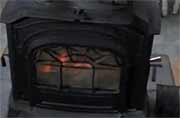
FRIDAY, Jan. 21 (HealthDay News) — HEPA filters may help lower the risk of cardiovascular disease caused by exposure to indoor air pollution, a new study suggests.
Canadian researchers looked at 45 adults from 25 homes in a small community where wood-burning stoves were the main sources of pollution. HEPA (high-efficiency particle air) filters were placed in each home’s main activity room and in each participant’s bedroom.
The HEPA filter was operated normally during one seven-day period and without the internal filters during another seven-day period. The participants did not know when the filters were being operated normally, the study authors noted.
Air sampling devices were installed in the homes, and the participants were asked to record their activities, locations and proximity to pollution sources every hour. Blood and urine samples were collected from the participants at the end of each seven-day period.
The researchers found that the HEPA filters reduced levels of airborne particulate matter, resulting in improved blood vessel health and reductions in blood markers associated with an increased risk of cardiovascular disease.
The study was published online Jan. 21 ahead of print in the American Journal of Respiratory and Critical Care Medicine.
“HEPA filters are a potentially useful intervention since they are relatively inexpensive to purchase and operate and can effectively remove tiny particles that can be inhaled, to improve air quality inside homes where the majority of time is spent,” study author Ryan Allen, an assistant professor at Simon Fraser University in Burnaby, British Columbia, said in a news release from the American Thoracic Society.
“The importance of residential wood smoke as a source of air pollution is likely to increase due to the rising costs of other fuels,” he added.
More information
The American Lung Association has more about indoor air quality.

